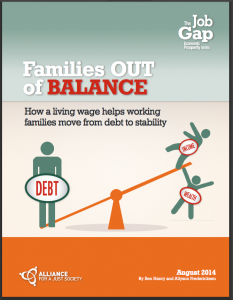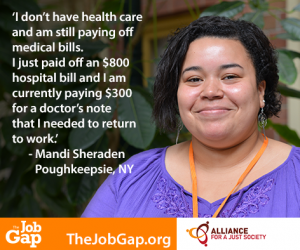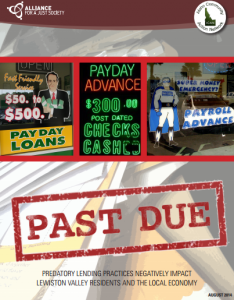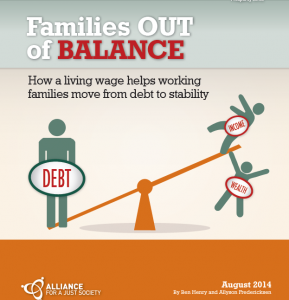 August 26, 2014
Contact: Kathy Mulady
(206) 992-8787
kathy@allianceforajustsociety.org
August 26, 2014
Contact: Kathy Mulady
(206) 992-8787
kathy@allianceforajustsociety.org
Read the Families Out of Balance report here.
Low-income families are already struggling to meet basic needs. Factor in suffocating household debt, and it is clear that families not making a living wage have little chance of building for the future.
As the gap between minimum wages and living wages continues to grow, we find that low-income households face a disproportionate debt burden — to an alarming degree. Families are forced to navigate a system that sets them up to fail, resulting in painful kitchen table conversations as households confront impossible balance sheets.
Job Gap: Families Out of Balance, produced by the Alliance for a Just Society, is the first report in the Alliance’s 2014 Job Gap Economic Prosperity Series. This study examines just what it takes to move beyond living paycheck-to-paycheck and the challenges that low-income families burdened with debt face.
The report also includes living wage findings for five household types in 10 states and in New York City. The Alliance has produced a Job Gap Study on jobs and wages since 1999.Continue reading “Families Out of Balance: Living Wages Move Families from Survive to Thrive”





